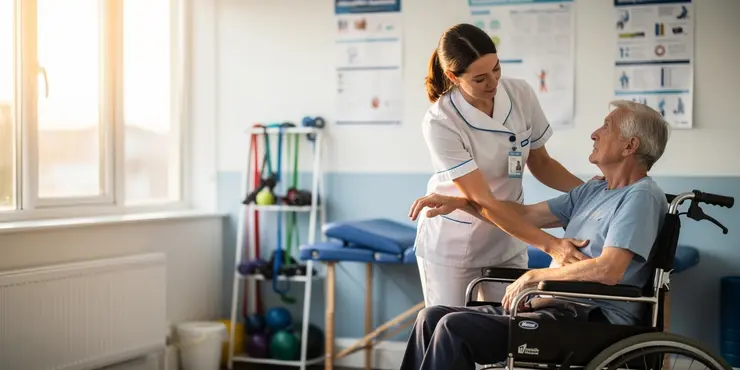
Find Help
More Items From Ergsy search
-
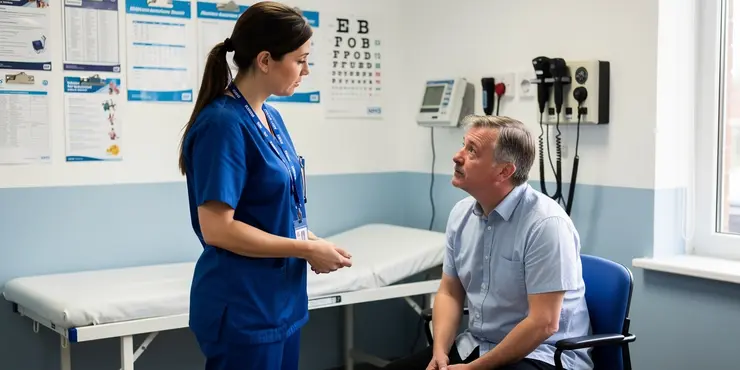
What is motor neurone disease?
Relevance: 100%
-
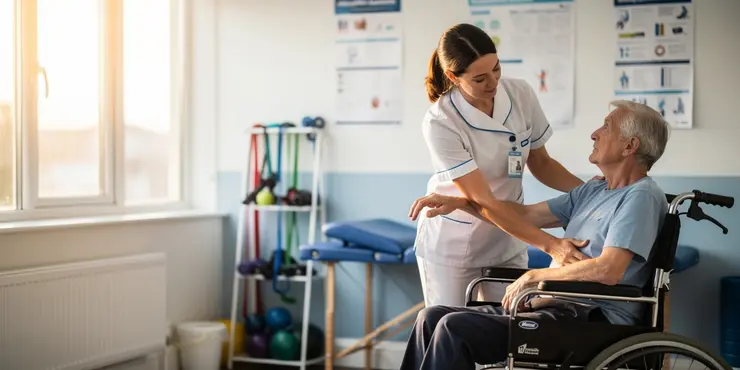
What treatments are available for motor neurone disease?
Relevance: 99%
-
Are there different types of motor neurone disease?
Relevance: 98%
-
Is motor neurone disease hereditary?
Relevance: 97%
-
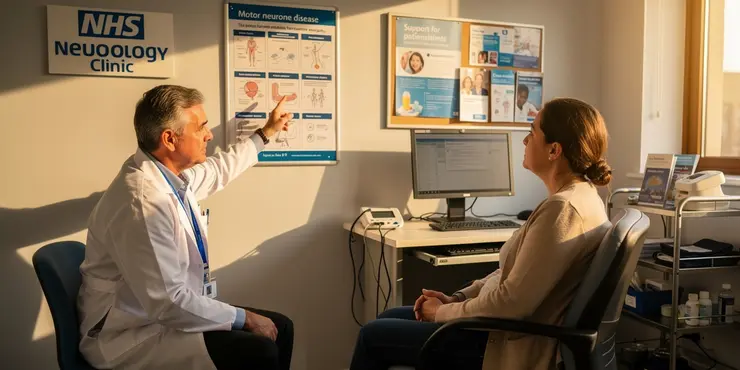
Is there a cure for motor neurone disease?
Relevance: 96%
-
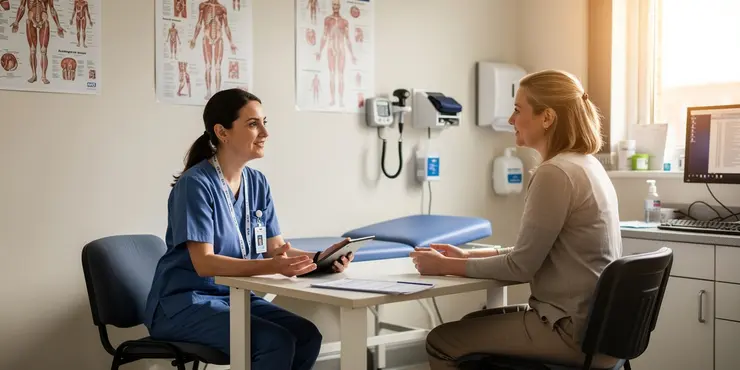
What causes motor neurone disease?
Relevance: 96%
-
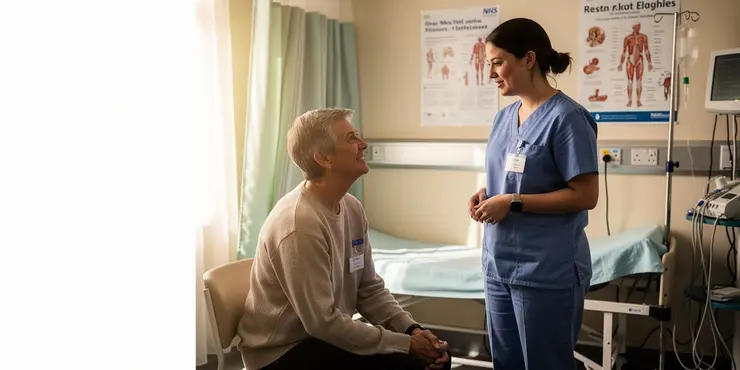
What are the primary symptoms of motor neurone disease?
Relevance: 88%
-
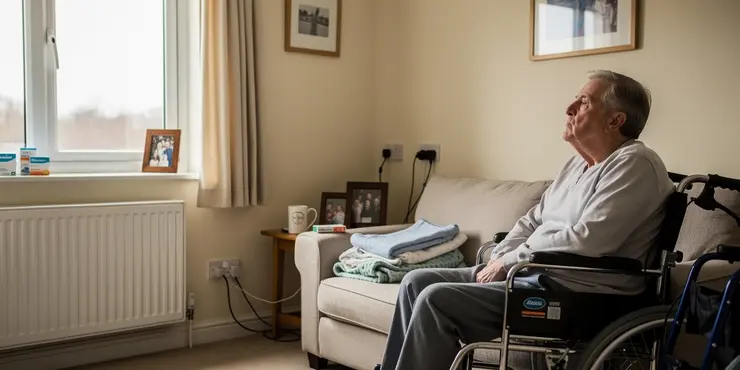
How is breathing affected by motor neurone disease?
Relevance: 85%
-
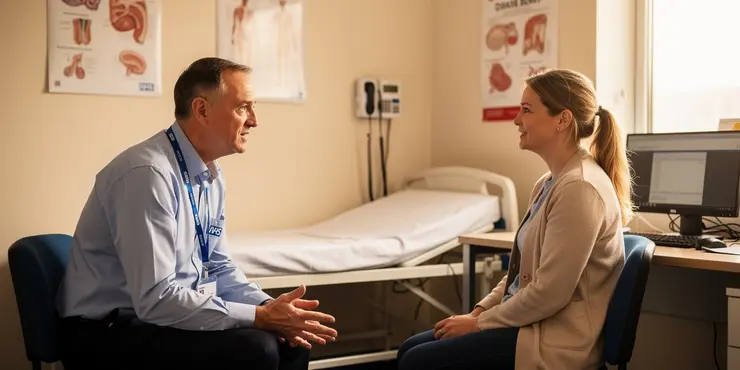
How is motor neurone disease diagnosed?
Relevance: 85%
-
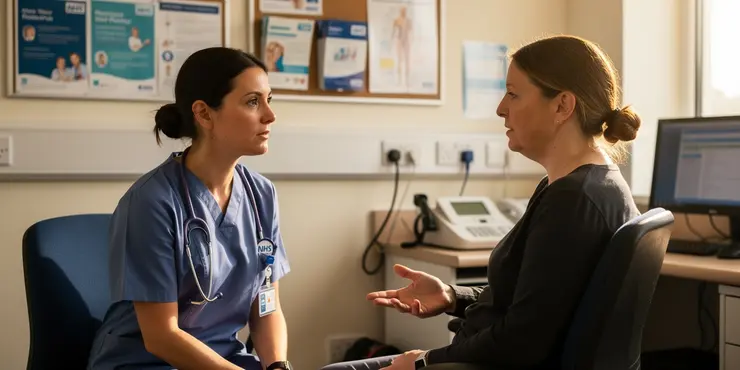
What role do genetics play in motor neurone disease?
Relevance: 85%
-
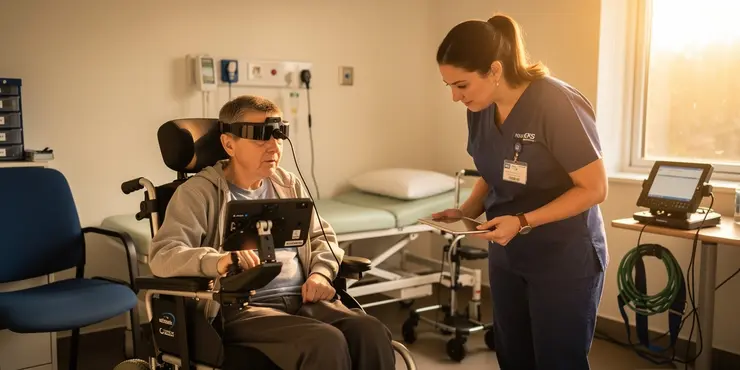
What assistive devices can help people with motor neurone disease?
Relevance: 83%
-
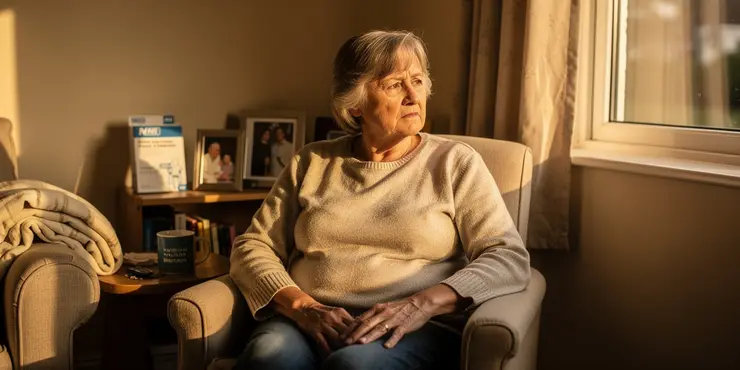
Motor neurone disease Julie's story | NHS
Relevance: 82%
-
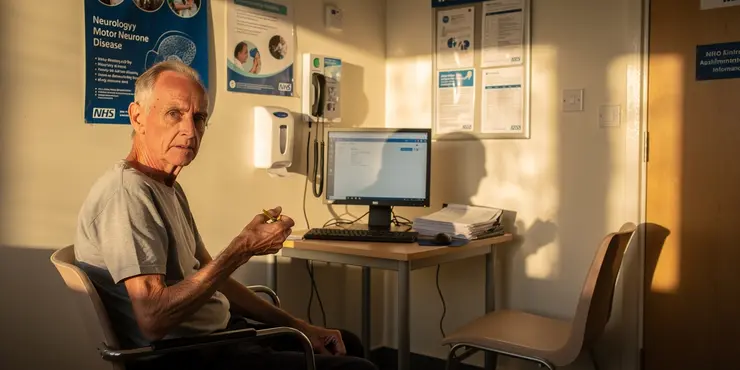
How does motor neurone disease affect the body?
Relevance: 80%
-
How does motor neurone disease affect speech?
Relevance: 78%
-
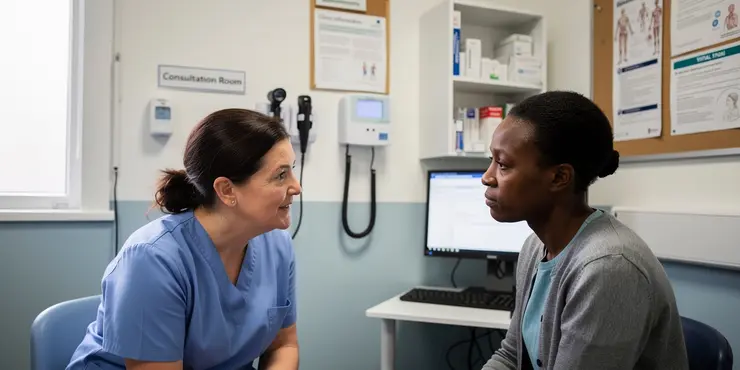
What is the life expectancy after a motor neurone disease diagnosis?
Relevance: 77%
-
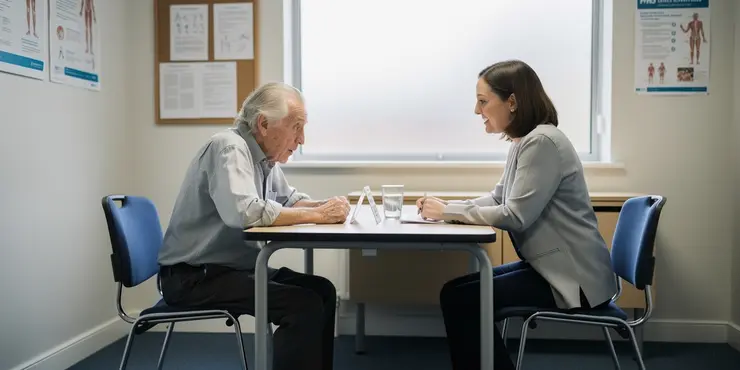
How does motor neurone disease impact swallowing?
Relevance: 76%
-
Can lifestyle changes impact motor neurone disease progression?
Relevance: 76%
-
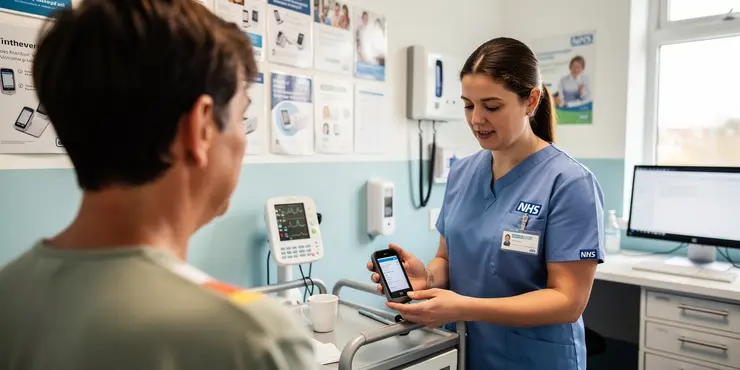
Voice banking service helps people live with motor neurone disease
Relevance: 73%
-

How can caregivers support someone with motor neurone disease?
Relevance: 70%
-
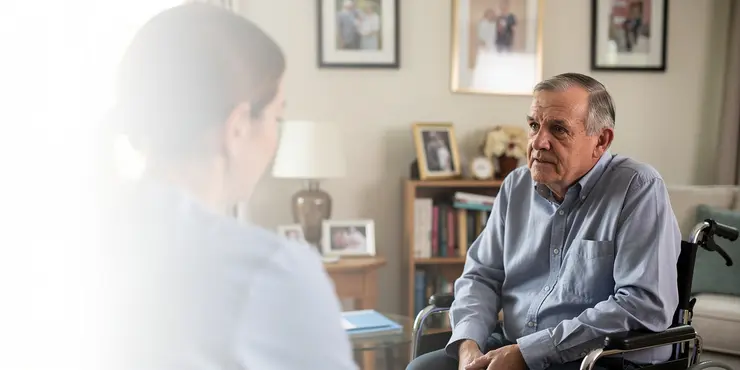
Are there support groups for individuals with motor neurone disease?
Relevance: 65%
-
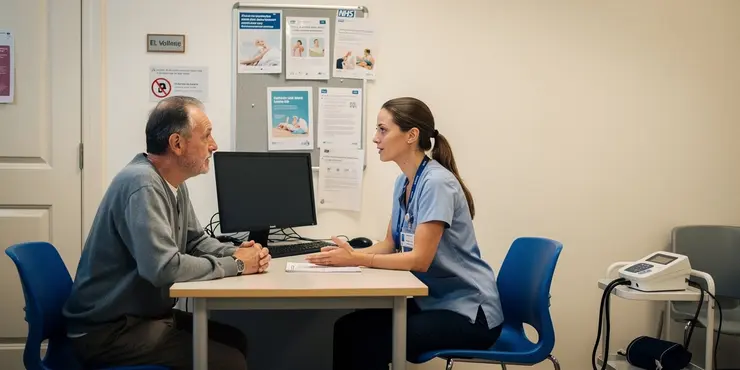
Who is at risk for motor neurone disease?
Relevance: 63%
-
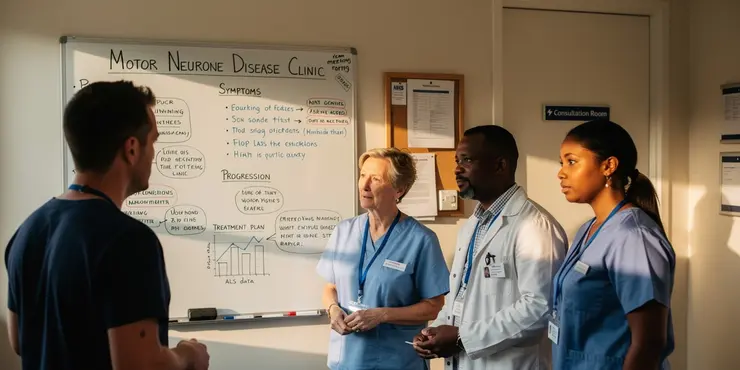
What research is being done on motor neurone disease?
Relevance: 63%
-
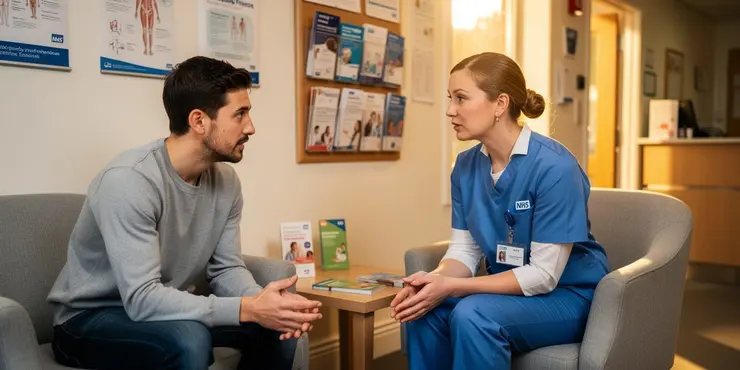
What is MND?
Relevance: 42%
-
How does Huntington's disease affect movement?
Relevance: 41%
-
What is Parkinson's disease?
Relevance: 39%
-
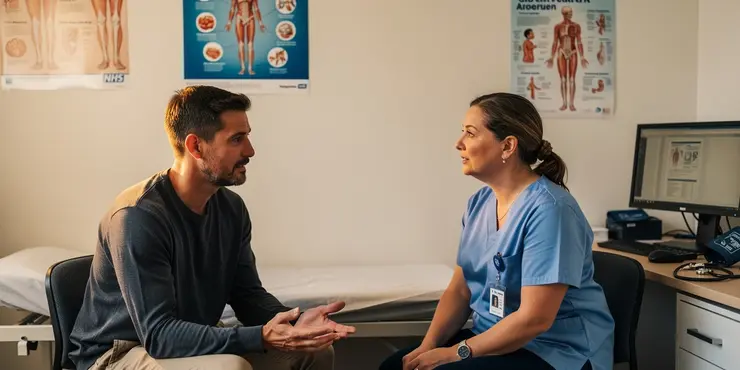
What causes Huntington's disease?
Relevance: 36%
-

What treatments are available for Crohn's disease?
Relevance: 35%
-
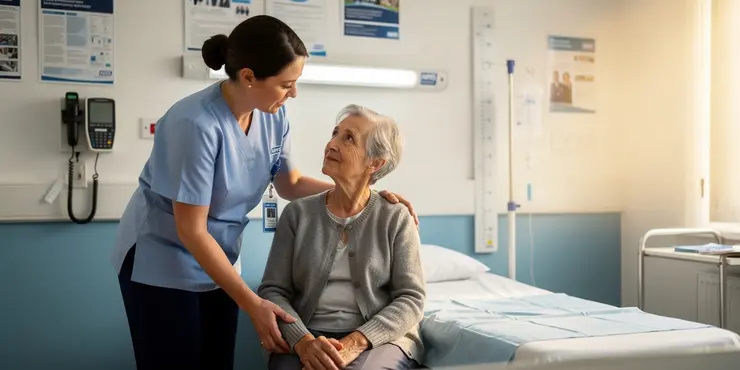
What treatments are available for Alzheimer's disease?
Relevance: 34%
-
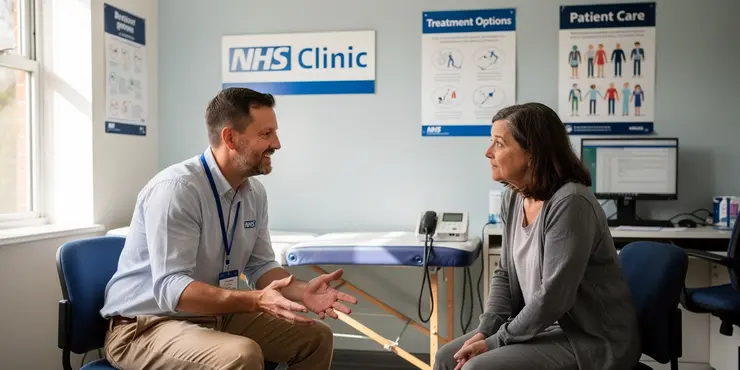
What research is being done on Huntington's disease?
Relevance: 34%
-
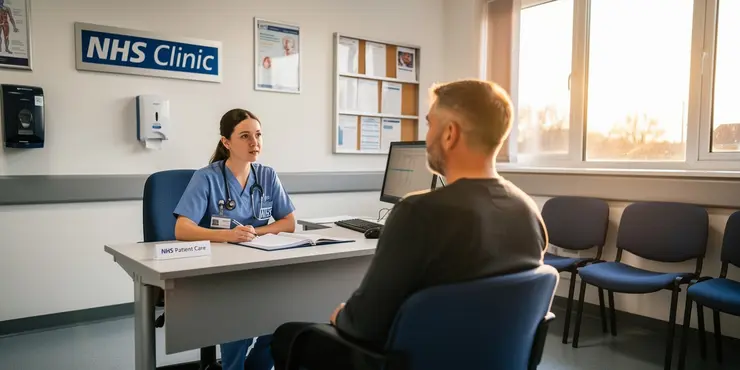
Chronic kidney disease: What are the treatments?
Relevance: 33%
-

Is Huntington's disease fatal?
Relevance: 33%
-
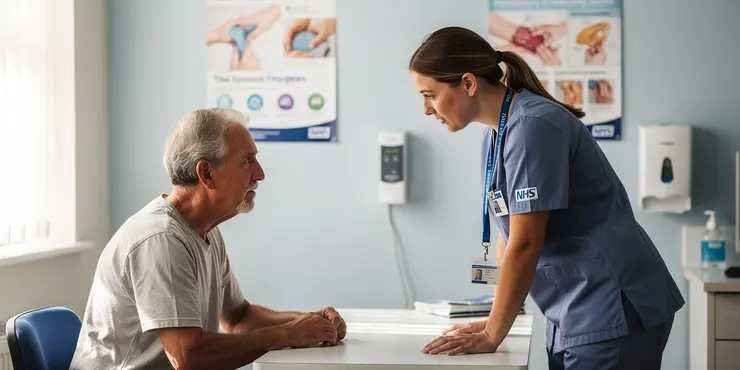
Can flesh-eating disease recur after treatment?
Relevance: 33%
-
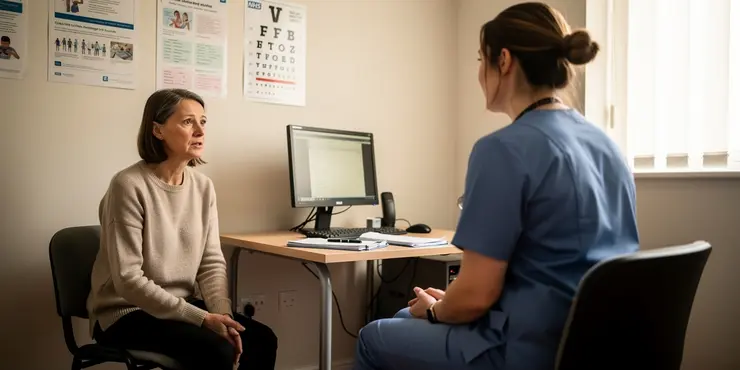
What are the symptoms of Huntington's disease?
Relevance: 32%
-
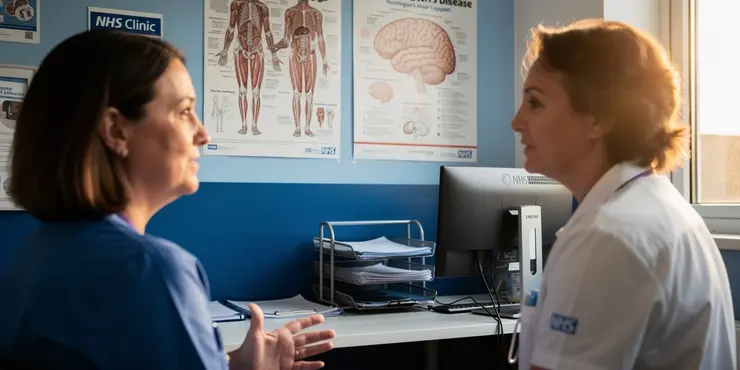
What is Huntington's disease?
Relevance: 30%
-
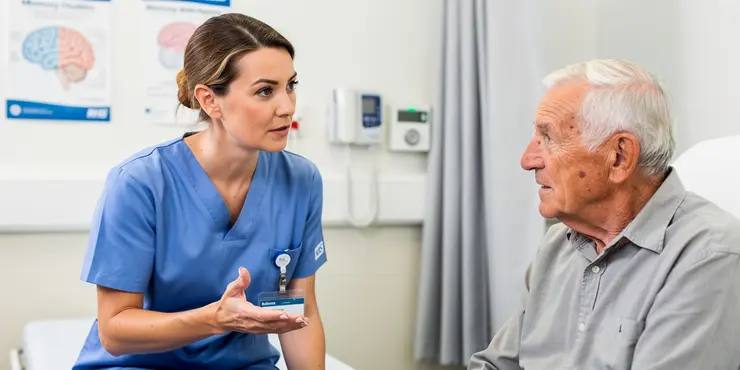
What causes Alzheimer's disease?
Relevance: 30%
-
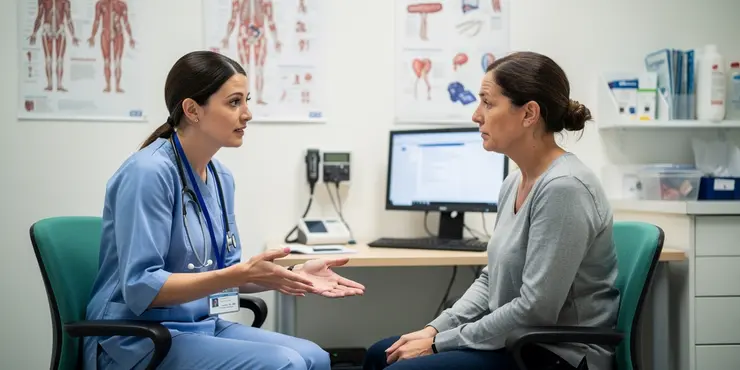
Are there treatments available for Huntington's disease?
Relevance: 29%
-
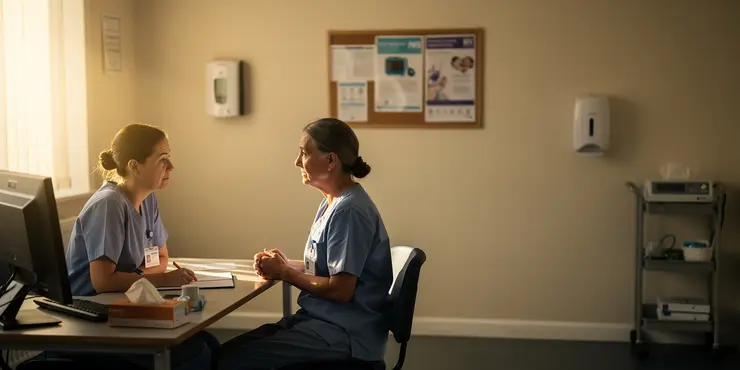
Can Huntington's disease be cured?
Relevance: 29%
-
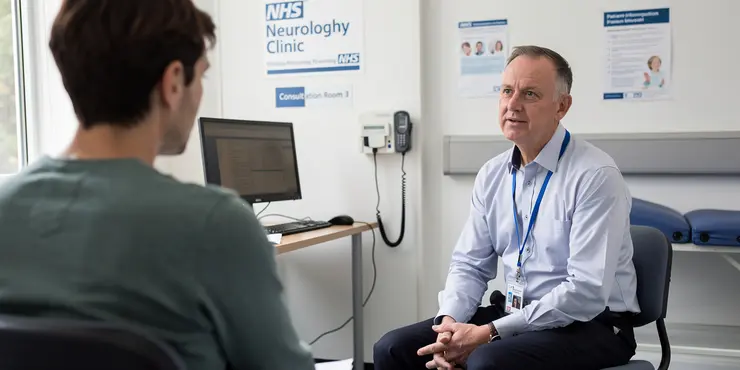
What kinds of specialists are involved in treating Huntington's disease?
Relevance: 27%
-
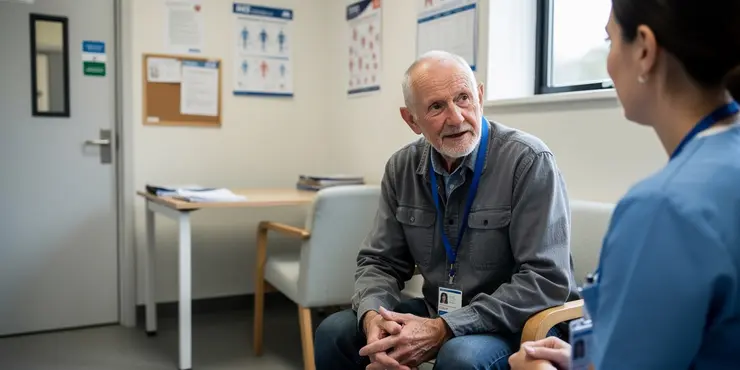
Parkinson’s Disease and NHS RightCare: Long Term Condition Scenario
Relevance: 27%
-

Can Huntington's disease be prevented?
Relevance: 27%
Understanding Motor Neurone Disease
Motor Neurone Disease (MND) is a progressive neurological condition that affects the nerve cells (neurons) that control voluntary muscles. This condition, well known through public figures such as Stephen Hawking, leads to muscle weakness and atrophy. In the UK, approximately 5,000 adults are affected by MND at any given time.
Treatments for Motor Neurone Disease
Medications
Currently, there is no cure for MND, but certain treatments can help manage the symptoms and improve quality of life. One of the main pharmaceutical treatments includes Riluzole, a drug that can slightly slow the progression of the disease. Available on the NHS, Riluzole is typically given to patients in tablet form and works by decreasing the release of glutamate, which is believed to contribute to nerve damage in people with MND.
In addition to Riluzole, other medications may be prescribed to control symptoms such as muscle cramps, spasticity, excessive salivation, and pain. These include muscle relaxants, anticholinergics, and certain anticonvulsants.
Physical Therapy and Rehabilitation
Physiotherapy plays a crucial role in improving mobility and managing stiffness. A physiotherapist can design an exercise program tailored to the patient's needs, helping to maintain muscle strength and joint flexibility. Occupational therapy is also beneficial in making daily activities easier and safer. This can involve adapting living spaces, recommending assistive devices, and advising on energy conservation techniques.
Speech and Nutrition Support
Speech and language therapy can assist individuals who experience difficulties with speech and swallowing. Therapists can offer techniques and exercises to improve communication and suggest tailored dietary modifications to prevent choking and ensure adequate nutrition. For those with significant swallowing difficulties, a feeding tube may be considered to support nutrition without the risk of choking.
Respiratory Support
As MND advances, respiratory muscles may weaken, leading to breathing difficulties. Non-invasive ventilation (NIV) is a commonly used method to support breathing. This involves wearing a mask over the nose or mouth connected to a machine that helps inflate the lungs. NIV can improve sleep, energy levels, and overall quality of life.
Palliative and Supportive Care
Palliative care is essential for managing pain and other symptoms while providing psychological and emotional support. Hospices and specialist clinics specializing in MND offer comprehensive care, including support for families and carers. In the UK, organizations like the Motor Neurone Disease Association provide essential resources and a network of support.
Overall, while there is no cure for MND, various treatments are available to manage symptoms and enhance quality of life. A multidisciplinary approach ensuring regular reviews and adjustments to care plans can help patients navigate the challenges posed by this condition.
Understanding Motor Neurone Disease
Motor Neurone Disease (MND) is a serious illness that affects specific nerve cells in the body. These nerve cells help us move our muscles. People like Stephen Hawking had this disease. MND can cause muscles to become weak and shrink. Around 5,000 adults in the UK have MND at any one time.
Treatments for Motor Neurone Disease
Medications
There is no cure for MND, but treatments can help with symptoms. One main treatment is a medicine called Riluzole. It can slow down the illness a little bit. People in the UK can get Riluzole from the NHS. It comes as a tablet and helps by stopping too much of a chemical called glutamate, which can harm nerve cells.
Other medicines can help with symptoms like muscle cramps, stiffness, too much saliva, and pain. These medicines are called muscle relaxants, anticholinergics, and anticonvulsants.
Physical Therapy and Rehabilitation
Physiotherapy is important to help people move better and keep muscles strong. A physiotherapist can make special exercises for each person. This helps keep muscles working and joints flexible. Occupational therapy can also help make everyday tasks easier and safer. It might involve changing things at home, using special tools, and learning how to save energy when doing tasks.
Speech and Nutrition Support
Some people with MND have trouble speaking or swallowing. Speech and language therapists can teach ways to talk and swallow better. They might suggest changes to food to prevent choking and keep the person well-fed. If swallowing is too hard, a feeding tube might be used to help with eating safely.
Respiratory Support
As MND gets worse, it can become hard to breathe. Non-invasive ventilation (NIV) is a way to help with breathing. This means wearing a mask connected to a machine that helps the lungs. NIV can help people sleep better, have more energy, and improve life overall.
Palliative and Supportive Care
Palliative care helps with pain and gives support for feelings and emotions. Special care centers and hospices offer this kind of help. In the UK, the Motor Neurone Disease Association helps with information and support for families and carers.
Even though we cannot cure MND, treatments can help with symptoms and make life better. Different kinds of healthcare experts work together to help people with MND. They check often and change care plans to support the person best.
Frequently Asked Questions
What is the primary goal of treatment for motor neurone disease?
The primary goal is to manage symptoms, maintain quality of life, and provide support, as there is currently no cure.
What medication is commonly prescribed for motor neurone disease?
Riluzole is the most commonly prescribed medication, which can slow the progression of the disease.
What is Radicava, and how does it help with motor neurone disease?
Radicava (edaravone) is an FDA-approved drug that may slow the decline in physical function for some people with ALS, a type of motor neurone disease.
Can physical therapy help individuals with motor neurone disease?
Yes, physical therapy can help maintain muscle strength and function, reduce stiffness, and improve mobility.
What role does occupational therapy play in managing motor neurone disease?
Occupational therapy can assist patients in adapting their living and work environments to improve safety and independence.
How can speech therapy benefit a person with motor neurone disease?
Speech therapy can help maintain communication abilities and teach techniques for swallowing difficulties.
Is there nutritional support available for people with motor neurone disease?
Yes, dietitians can provide guidance on high-calorie and nutrient-dense foods, and feeding tubes may be considered for severe swallowing issues.
What types of assistive devices are used for motor neurone disease?
Devices such as wheelchairs, communication aids, and modified utensils can aid in daily activities and communication.
How does respiratory care benefit those with motor neurone disease?
Respiratory therapists help manage breathing problems with techniques and devices like non-invasive ventilation to improve breathing.
What psychological support is available for people with motor neurone disease?
Counseling and support groups can provide emotional support and coping strategies for patients and families.
Are there alternative treatments for motor neurone disease?
Some patients explore alternative therapies such as acupuncture and massage, but these should complement conventional treatment.
What role do clinical trials play in motor neurone disease treatment?
Clinical trials offer opportunities to access experimental therapies and contribute to research but involve potential risks.
How important is multidisciplinary care in managing motor neurone disease?
Multidisciplinary care provides comprehensive support and treatment from healthcare professionals specializing in different areas.
Can genetic counseling be part of the treatment plan for motor neurone disease?
For familial cases of MND, genetic counseling can help understand the genetic aspects of the disease.
What is palliative care, and how does it help those with motor neurone disease?
Palliative care focuses on relieving symptoms and improving quality of life for patients with serious illnesses like MND.
Are there any experimental drug treatments for motor neurone disease?
Several experimental drugs are being tested in clinical trials, aiming to slow disease progression or improve symptoms.
How can family members support someone with motor neurone disease?
Family can offer emotional support, assist with daily activities, and participate in care planning and decision-making.
What role do support groups play in the treatment of motor neurone disease?
Support groups provide a space for sharing experiences, information, and emotional support among patients and caregivers.
How does regular monitoring affect the treatment of motor neurone disease?
Regular monitoring helps adjust treatment plans to address changing symptoms and needs effectively.
Is there a role for telemedicine in the management of motor neurone disease?
Telemedicine can provide remote consultations and support, increasing access to care and monitoring for patients with mobility challenges.
What is the main aim of treatment for motor neurone disease?
Motor neurone disease is an illness that affects how your muscles work.
The main aim of treatment is to help people feel as good as possible.
This means doctors might give medicine, special machines, or advice to make life easier.
Using picture boards or devices that help you talk might be useful.
It’s important to have support from doctors, nurses, family, and friends.
The main goal is to help you feel better, enjoy life, and give you support because there is no cure right now.
What medicine is usually given for motor neurone disease?
Doctors often give a medicine called Riluzole. It can help slow down the disease.
What is Radicava, and how does it help with motor neurone disease?
Radicava is medicine. It helps people with motor neurone disease (MND). MND is when the nerves and muscles stop working well. Radicava can help to slow down the damage.
Some people use pictures or simple words to understand better. Audio tools can also help by listening instead of reading. Talking with a helper can make things clearer too.
Radicava (edaravone) is a medicine that doctors say can help people with ALS. ALS is a disease that makes it hard for some people to move their muscles. Radicava might help some people keep their muscles working better for a longer time.
Can physical therapy help people with motor neurone disease?
Physical therapy means doing special exercises and movements. It can help people with motor neurone disease (a disease that affects the nerves and muscles).
If you have motor neurone disease, physical therapy can help keep your muscles strong and your joints moving. This can make you feel better and help you do more things you like.
If you are seeing a physical therapist, they can show you easy exercises. They might suggest tools like special balls or bands to help you.
Ask your doctor if physical therapy is a good idea for you. They can help you find the right support. Remember, doing exercises little by little is okay.
Yes, doing exercises with a physical therapist can help keep your muscles strong. It can also help you move better and feel less stiff.
How does occupational therapy help people with motor neurone disease?
Occupational therapy can help people who have motor neurone disease (MND). Here is how it can help:
- Keeping independence: Occupational therapists teach people ways to do everyday tasks by themselves, like eating and getting dressed.
- Using special tools: They suggest special tools or changes to the home to make life easier at home or work.
- Staying safe: They help make sure people are safe when moving around, showering, or making meals.
- Staying active: They encourage exercises to keep muscles strong for as long as possible.
- Support for carers: They also give tips to family or carers on how best to help and look after their loved ones.
Occupational therapy is important for making life easier and more comfortable for people with MND.
Occupational therapy helps people make changes at home and work. These changes make things safer and help people do things on their own.
How can speech therapy help someone with motor neurone disease?
Speech therapy can help people talk and swallow better.
- Talking: The therapist can teach you ways to speak clearly.
- Swallowing: The therapist can teach you safer ways to eat and drink.
You can use pictures or a tablet to help you talk.
Speech therapy can help you talk better. It can also show you how to swallow safely if you have trouble with that.
Can people with motor neurone disease get help with food and nutrition?
Yes, there is help for people with motor neurone disease to eat healthy. Eating well is important. It gives the body energy and can make people feel better.
If swallowing is hard, doctors or dietitians can give advice on what to eat. Special soft foods and drinks might be needed.
Using tools can help with eating. For example, special forks, spoons, or cups. These make eating easier.
A speech and language therapist can also help with finding the best way to eat and drink safely.
Yes, dietitians can help you choose foods that are high in calories and full of good nutrients. If someone has big problems swallowing, doctors might use feeding tubes to help.
What are some helpful tools for people with motor neurone disease?
People with motor neurone disease may use special tools to help them. Here are some:
- Walking aids: These help people walk safely.
- Wheelchairs: These are chairs with wheels for moving around easier.
- Communication devices: These help people talk to others if it's hard to speak.
- Bathroom aids: These tools make it easier to use the bathroom.
- Eating aids: These help people eat and drink.
These tools make life easier and safer. You can ask a doctor for more help with choosing the right tools.
These tools can help you do things every day and talk to others:
- Wheelchairs help you move around.
- Communication aids help you talk.
- Special forks and spoons can help you eat.
How does breathing help people with motor neurone disease?
Motor neurone disease can make it hard to breathe. Breathing helps give us oxygen we need. **How can breathing treatment help?** - *Easier to Breathe*: Machines can help when it's hard to breathe. - *More Comfort*: Breathing right helps us feel better. - *Better Sleep*: When we breathe well, we sleep better. **Tools that can help:** - Breathing machines - Special masks Ask a doctor or nurse how these tools can help.Breathing helpers support people who have trouble breathing. They use special methods and machines to make breathing easier.
What help is there for feelings when you have motor neurone disease?
People with motor neurone disease might feel sad, worried, or scared. It is important to talk about these feelings and get support.
Here are some ways to get support:
- Talk to a doctor or nurse: They can listen and give advice on what to do next.
- Visit a counselor or therapist: They are professionals who can help you understand your feelings.
- Join a support group: Talking to other people with similar experiences can help you feel less alone.
You can also try:
- Relaxation exercises: Deep breathing or listening to calm music can help you feel better.
- Talking to friends or family: Sharing your feelings with people you trust can be comforting.
Remember, it's okay to ask for help when you need it. You are not alone.
Talking to a counselor or joining a support group can help people feel better. It gives patients and their families a chance to share their feelings and learn ways to deal with tough times.
Are there other ways to help with motor neurone disease?
Motor neurone disease (MND) is a sickness that hurts the nerves in the body. It makes moving hard. Doctors can help with medicine, but are there other things that might help too? This is a question many people ask.
Some people try different ways to feel better. Here are some ideas:
- Exercise: Gentle exercises or stretches. They keep the body moving.
- Therapy: Talking to someone or doing special activities to think and feel good.
- Healthy Food: Eating food that helps the body stay strong.
- Relaxing Activities: Doing things that make you calm, like listening to music.
It's important to talk to a doctor before trying new things. They can help pick what's best.
Using tools like simple words, pictures, or talking devices can help people with MND. These tools make it easier to talk and understand things.
Some people try other types of treatment like acupuncture and massage. These can be used along with the regular treatment from your doctor.
How do clinical trials help treat motor neurone disease?
Clinical trials are tests to see if new treatments work. They help doctors find better ways to treat motor neurone disease. These tests show if a new medicine is safe and if it helps people feel better.
If you want to know more, ask your doctor or a nurse. They can help explain. You can also use books or websites with simple words and pictures to understand better.
Clinical trials are tests to see if new medicines work. They can help people try new treatments and help doctors learn more, but there might be some risks.
Why is it important for different doctors and helpers to work together when someone has motor neurone disease?
When a person has motor neurone disease, many different doctors and helpers need to work together. This is called multidisciplinary care.
It is important because:
- Different doctors know different things. Working together helps them take better care of the person.
- The person gets help with many needs, like moving, talking, eating, and breathing.
- Family and friends also get support and learn how to help.
Using pictures and videos can help people understand more about the care they need. Talking with someone they trust can also make them feel better and supported.
Multidisciplinary care means different types of healthcare workers help you. They each know a lot about different things. Together, they give you all the support and treatment you need.
Can a doctor who knows about genes help with motor neurone disease?
Motor neurone disease is a sickness that affects nerves in the body. A special doctor who understands genes might be able to help.
These doctors can talk about what the sickness is and how it affects the family. They can also explain if it can be passed down to children.
Using pictures or videos might help make things clearer.
If someone in your family has MND, talking to a special doctor about genes can help you learn more about it.
What is palliative care, and how does it help people with motor neurone disease?
Palliative care is special care for people who are very sick. It helps them feel better and more comfortable.
Motor neurone disease is a sickness that makes it hard for people to move, talk, or even breathe.
Palliative care can help by:
- Making pain go away or feel less.
- Helping with breathing and eating.
- Giving support to families.
If you or someone you know has this sickness, talk to a doctor about palliative care. They can help make a plan to feel better.
Palliative care helps people feel better when they are very sick. It tries to make their symptoms less painful. It also helps them have a better life. This care is for people with serious illnesses like MND (which is Motor Neurone Disease).
Are there any new drug tests for motor neurone disease?
Motor neurone disease makes muscles weak. Scientists are looking for new medicines to help. They are testing some new drugs.
Doctors call these tests "experiments" because they are not sure yet if the drugs work. People who take part in these tests are helping doctors learn more.
If someone you know has this disease, talk to a doctor. They can tell you more about these new tests and if they might help.
It can be helpful to use tools like pictures or videos to understand more. You can also ask someone to read with you. This makes it easier to follow along.
Scientists are testing new medicines to try and make people feel better or stop them from getting worse.
How can family help someone with motor neurone disease?
Family can help by:
- Listening to their needs.
- Helping with daily tasks.
- Going to doctor visits together.
- Talking to their healthcare team for advice.
- Learning about the disease.
- Treating them with kindness and patience.
Some useful tools are:
- Using a calendar to remember appointments.
- Writing a list of tasks to do.
- Using simple words and speaking slowly.
Family can help you feel better, help you with daily tasks, and help make decisions and plans for care.
How do groups that help support people with motor neurone disease?
Support groups are like teams that help people with motor neurone disease. They give advice, talk about feelings, and help people feel better. Being part of a support group can make people feel less alone. These groups can help family members too. They can learn more about how to care for someone with motor neurone disease.
Tools that can help:
- Meetings with other people with motor neurone disease.
- Talking to someone who understands your feelings.
- Using online chats to talk to others from home.
Support groups are places where people can talk about their feelings, share stories, and help each other. These groups are for people who are sick and the people who look after them.
How does regular checking help people with motor neurone disease?
Regular check-ups help doctors change treatment plans when symptoms or needs change.
Can doctors use video calls to help people with motor neurone disease?
Telemedicine lets you talk to doctors and nurses from home. This helps people who find it hard to travel. You can see a doctor on a computer or phone and they can help take care of you.
Useful Links
This website offers general information and is not a substitute for professional advice.
Always seek guidance from qualified professionals.
If you have any medical concerns or need urgent help, contact a healthcare professional or emergency services immediately.
Some of this content was generated with AI assistance. We’ve done our best to keep it accurate, helpful, and human-friendly.
- Ergsy carfully checks the information in the videos we provide here.
- Videos shown by Youtube after a video has completed, have NOT been reviewed by ERGSY.
- To view, click the arrow in centre of video.
- Most of the videos you find here will have subtitles and/or closed captions available.
- You may need to turn these on, and choose your preferred language.
- Go to the video you'd like to watch.
- If closed captions (CC) are available, settings will be visible on the bottom right of the video player.
- To turn on Captions, click settings .
- To turn off Captions, click settings again.
More Items From Ergsy search
-

What is motor neurone disease?
Relevance: 100%
-

What treatments are available for motor neurone disease?
Relevance: 99%
-
Are there different types of motor neurone disease?
Relevance: 98%
-
Is motor neurone disease hereditary?
Relevance: 97%
-

Is there a cure for motor neurone disease?
Relevance: 96%
-

What causes motor neurone disease?
Relevance: 96%
-

What are the primary symptoms of motor neurone disease?
Relevance: 88%
-

How is breathing affected by motor neurone disease?
Relevance: 85%
-

How is motor neurone disease diagnosed?
Relevance: 85%
-

What role do genetics play in motor neurone disease?
Relevance: 85%
-

What assistive devices can help people with motor neurone disease?
Relevance: 83%
-

Motor neurone disease Julie's story | NHS
Relevance: 82%
-

How does motor neurone disease affect the body?
Relevance: 80%
-
How does motor neurone disease affect speech?
Relevance: 78%
-

What is the life expectancy after a motor neurone disease diagnosis?
Relevance: 77%
-

How does motor neurone disease impact swallowing?
Relevance: 76%
-
Can lifestyle changes impact motor neurone disease progression?
Relevance: 76%
-

Voice banking service helps people live with motor neurone disease
Relevance: 73%
-

How can caregivers support someone with motor neurone disease?
Relevance: 70%
-

Are there support groups for individuals with motor neurone disease?
Relevance: 65%
-

Who is at risk for motor neurone disease?
Relevance: 63%
-

What research is being done on motor neurone disease?
Relevance: 63%
-

What is MND?
Relevance: 42%
-
How does Huntington's disease affect movement?
Relevance: 41%
-
What is Parkinson's disease?
Relevance: 39%
-

What causes Huntington's disease?
Relevance: 36%
-

What treatments are available for Crohn's disease?
Relevance: 35%
-

What treatments are available for Alzheimer's disease?
Relevance: 34%
-

What research is being done on Huntington's disease?
Relevance: 34%
-

Chronic kidney disease: What are the treatments?
Relevance: 33%
-

Is Huntington's disease fatal?
Relevance: 33%
-

Can flesh-eating disease recur after treatment?
Relevance: 33%
-

What are the symptoms of Huntington's disease?
Relevance: 32%
-

What is Huntington's disease?
Relevance: 30%
-

What causes Alzheimer's disease?
Relevance: 30%
-

Are there treatments available for Huntington's disease?
Relevance: 29%
-

Can Huntington's disease be cured?
Relevance: 29%
-

What kinds of specialists are involved in treating Huntington's disease?
Relevance: 27%
-

Parkinson’s Disease and NHS RightCare: Long Term Condition Scenario
Relevance: 27%
-

Can Huntington's disease be prevented?
Relevance: 27%


